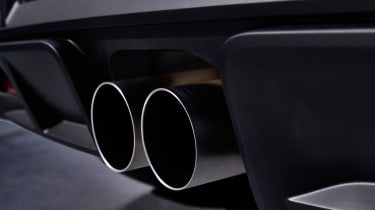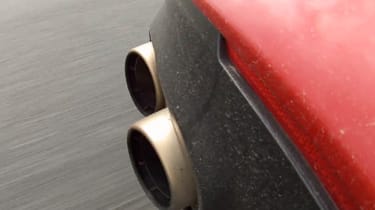Government noise cameras aim to fine drivers with loud exhausts
The latest noise camera systems are being deployed at four locations across the country over the next two months

The Department for Transport began its first noise camera trials in 2019, after softer approaches to tackling loud vehicles such as warnings and education programmes proved ineffective. Now, the Transport Secretary has confirmed that similar systems are being deployed in four trial areas across the country over the next two months, with further systems set to be installed should the trial prove successful.
As with the DfT’s initial trial, the system is designed to target illegally modified exhausts or systems in disrepair to reduce noise pollution. Transport Secretary Anne-Marie Trevelyan also disclosed that ‘those who break the legal noise limits’ will be targeted, and with the current limit set at 74 dB, there are plenty of standard performance cars that will exceed that threshold should they be driven antisocially.
> UK speeding fines 2022 – what are the latest penalties for drivers?
Keighley in Bradford will be the location of the first noise camera system, with Bristol, Great Yarmouth and Birmingham set to receive the following three over the next two months. Once all four systems are operational, the trial will be run for two months before findings are analysed – should it be successful, the cameras could be rolled out nationwide.
Designed and developed by French firm MicrodB, specialists in the identification of acoustic sources, the new noise cameras combine a video camera with an array of microphones to pinpoint offending vehicles. The camera will capture an image of the vehicle and pair it with the maximum sound level recorded, creating a package of evidence to be used by local law enforcement. Unlike the first trial, which sent warnings to offending drivers, these new systems will use this evidence for prosecution.

Further details on the new systems are few and far between at this stage, but the technology deployed in 2019 aimed to reduce the number of false positives by taking the surrounding environment, speed of the road and category of vehicle into consideration when setting thresholds. This could also work against drivers, though, with the potential for vehicles to trigger the system under certain conditions even when under the 74 dB limit.
This latest trial stems from a £300,000 government investment in efforts to reduce noise pollution, an issue that’s estimated to cost the UK up to £10 billion in loss of productivity from sleep disturbance and health issues such as heart attacks, strokes and dementia.


